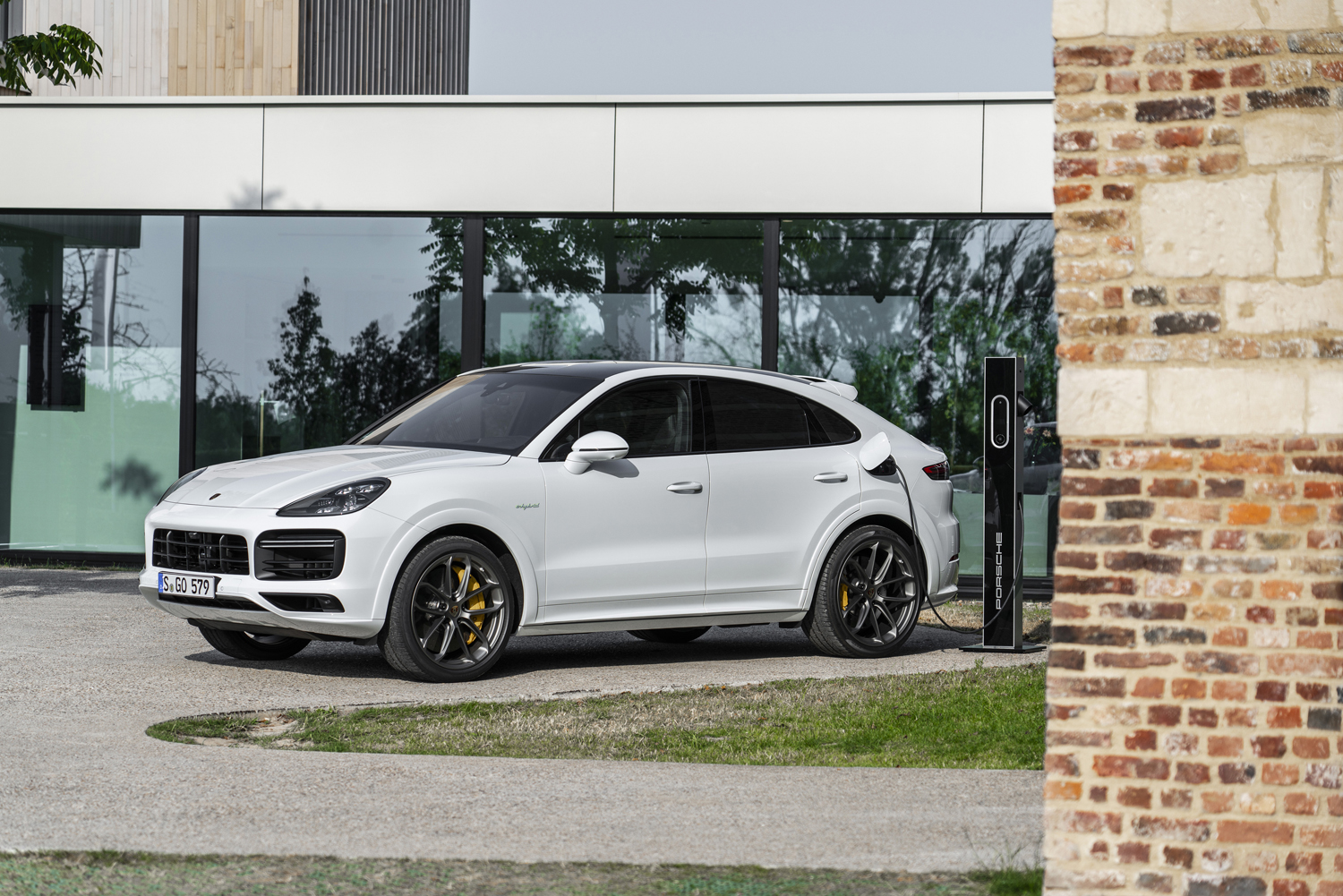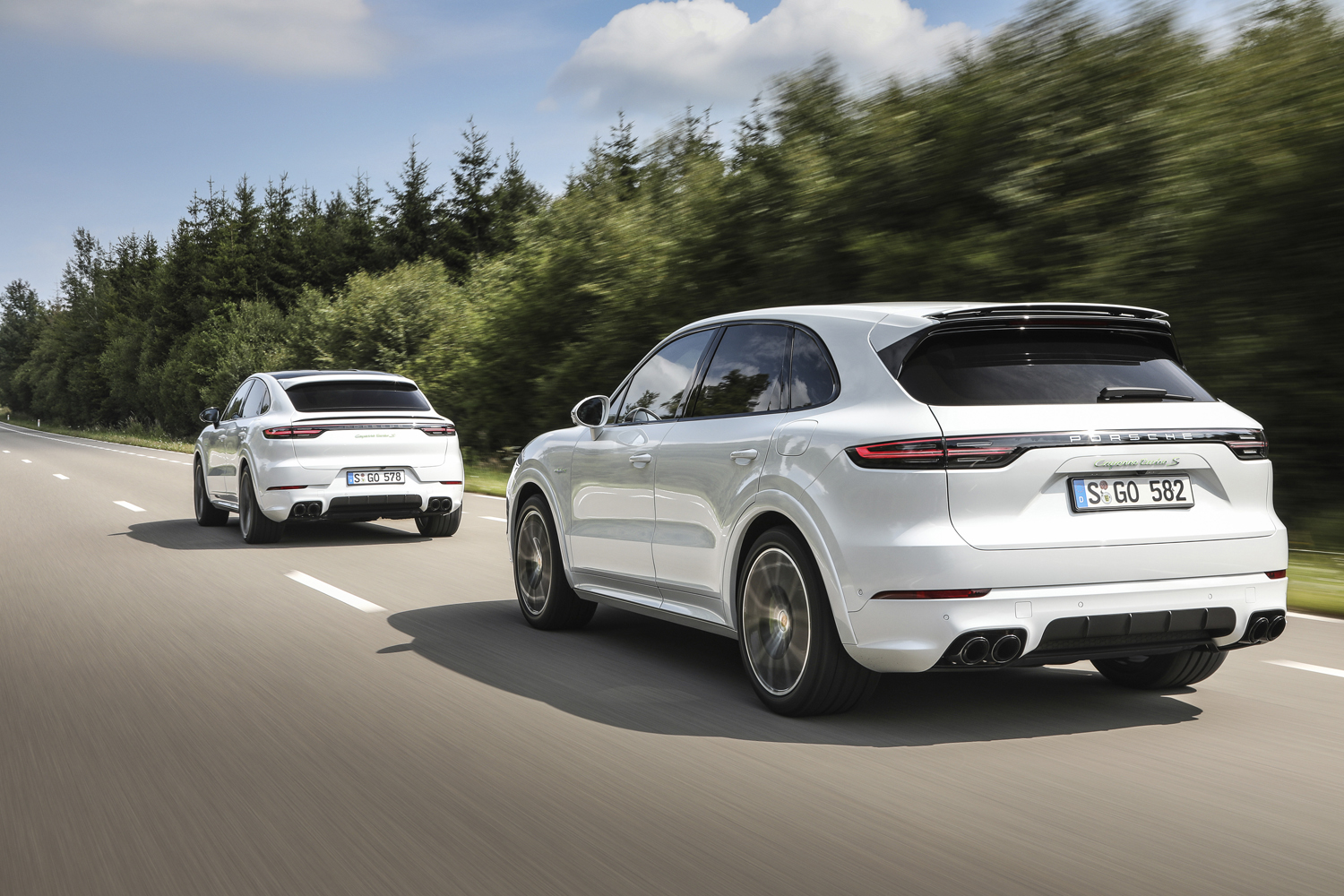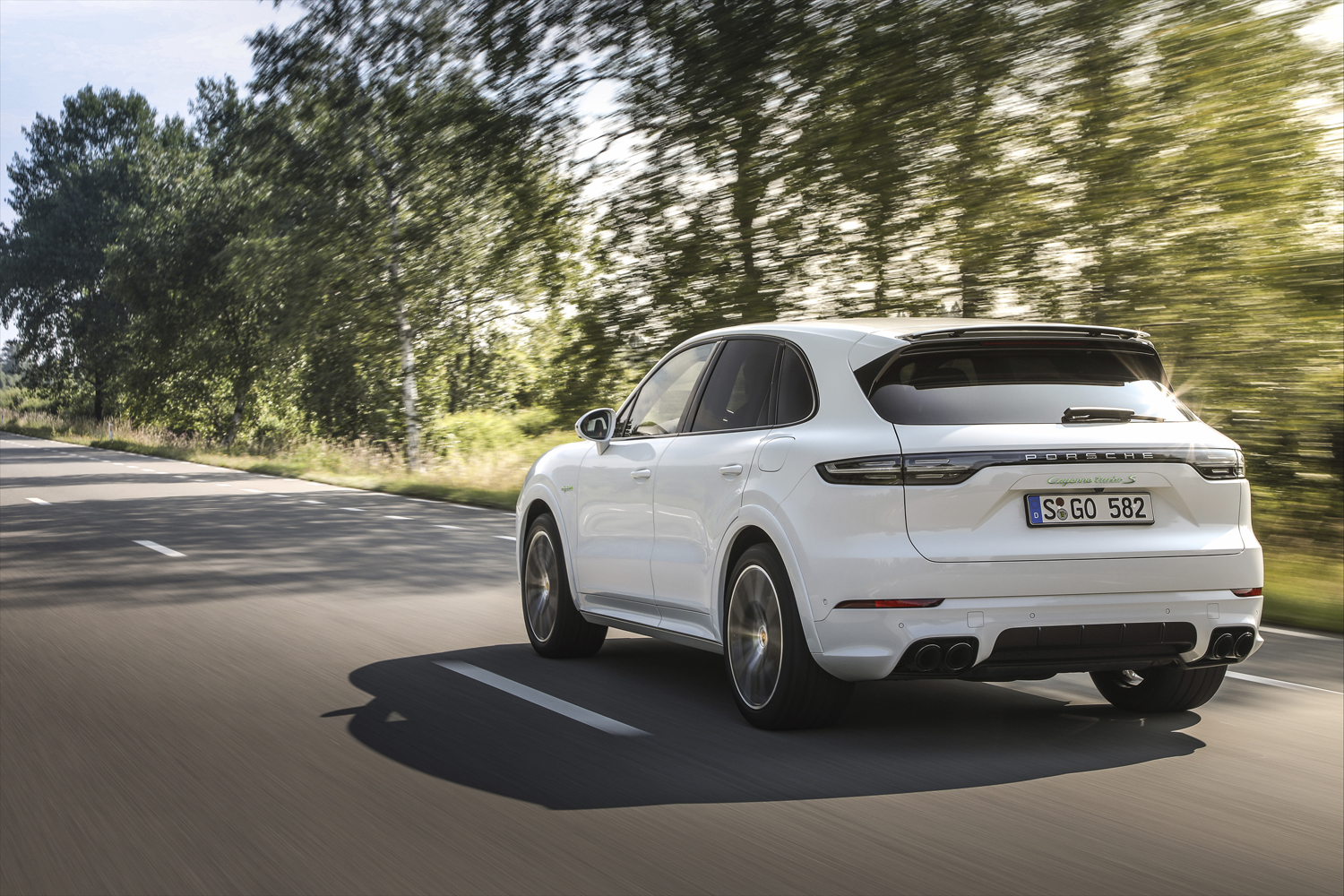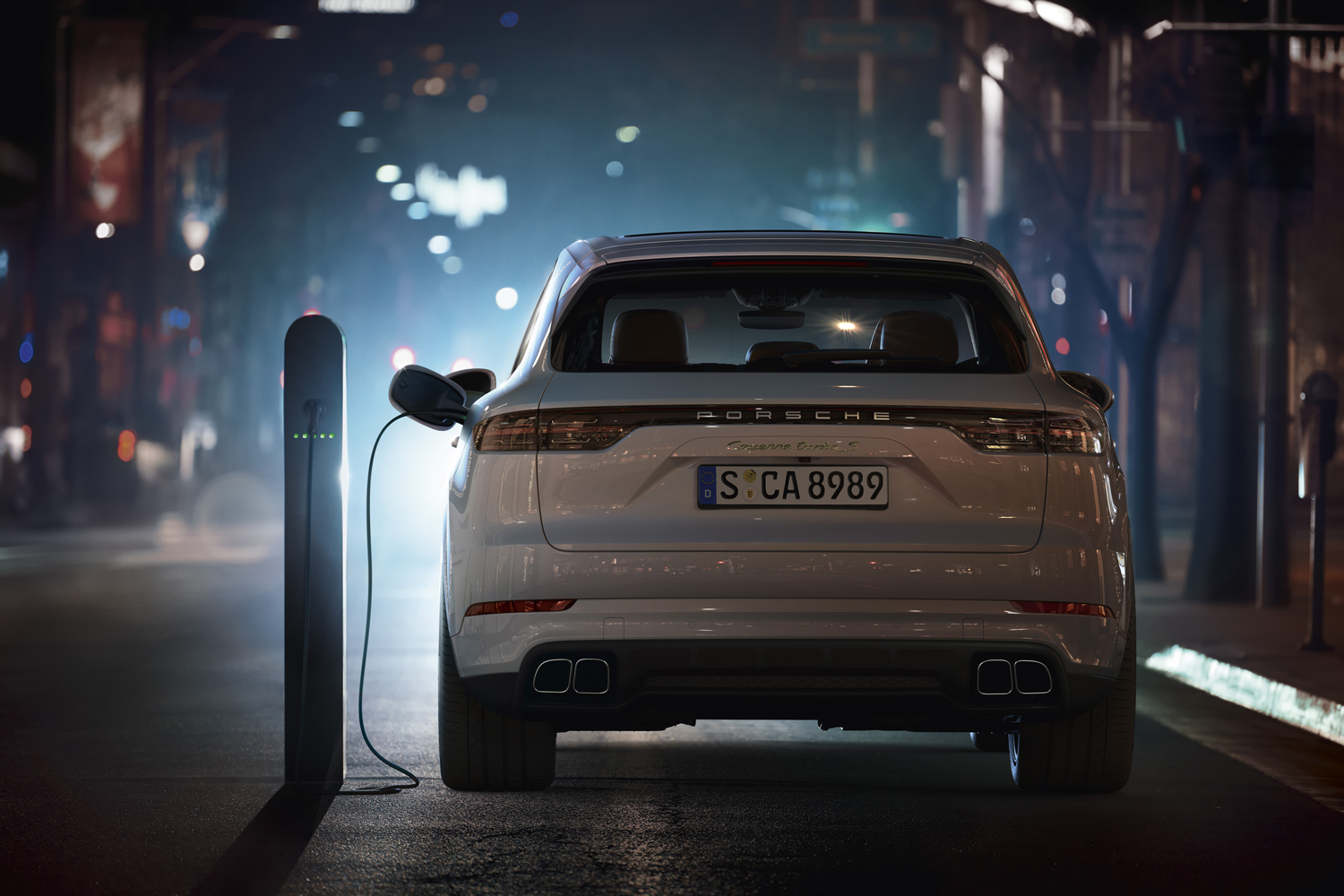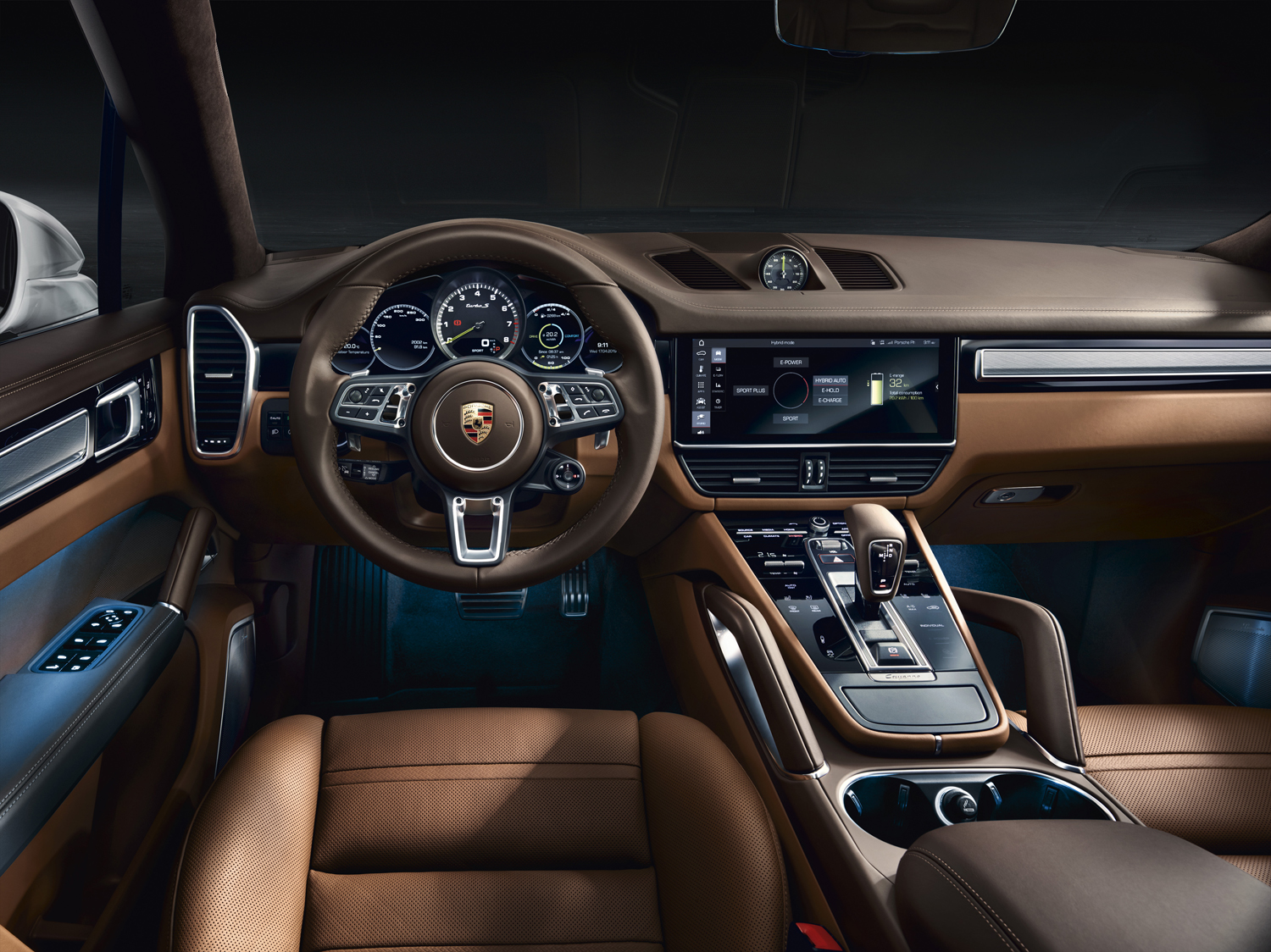Porsche expanded its portfolio of high-performance electrified cars by releasing three hybrid variants of the Cayenne at once. The regular, third-generation Cayenne and the swoopy Cayenne Coupe introduced earlier in 2019 both gain a range-topping Turbo S E-Hybrid version, while the more style-focused of the two receives a tamer E-Hybrid model packing familiar hardware. The trio will reach showrooms during the 2020 model year.
Like the Panamera that wears the same name, both variants of the Cayenne Turbo S E-Hybrid offer a brutal amount of power thanks to a plug-in hybrid powertrain built around a twin-turbocharged, 4.0-liter V8 engine. The eight-cylinder works with an electric motor to send 670 horsepower and 663 pound-feet of torque to the four wheels via an eight-speed automatic transmission. They’re not light, but the hybrid technology pelts them from zero to 60 mph in 3.6 seconds.
Porsche sandwiched the electric motor between the engine and the transmission. It draws electricity from a 14.1-kilowatt-hour lithium-ion battery pack stuffed under the trunk floor. Motorists who have access to a 240-volt charger can top up the pack in 2.4 hours, according to the German automaker. Efficiency-related specifications like the E-Hybrid’s fuel economy, and its electric-only range, will be published closer to its on-sale date.
Positioned further down in the Cayenne hierarchy, the E-Hybrid Coupe relies on a turbocharged, 3.0-liter V6 and an electric motor to deliver 455 horsepower and 516 pound-feet of torque. It takes 4.7 seconds to reach 60 mph from a stop, which is still plenty quick, and it tops out at 157 mph. Digital Trends drove the standard E-Hybrid and praised its versatile, multifaceted powertrain, its agile chassis, and its excellent infotainment system.
Visually, it takes a well-trained eye to tell the new hybrid models apart from their existing counterparts. They receive the usual assortment of model-specific emblems, as you’d expect, and 21-inch alloy wheels tucked under fender flares. It’s the same story inside, where the tech features found in other versions of the Cayenne are accounted for.
All three gasoline-electric variants of the Porsche Cayenne will reach American showrooms during the first quarter of 2020. Porsche priced the Cayenne Turbo S E-Hybrid at $161,900, the Cayenne Turbo S E-Hybrid Coupe at $164,400, and the Cayenne E-Hybrid Coupe at $86,400. Note the aforementioned figures don’t include a mandatory $1,350 destination charge.

